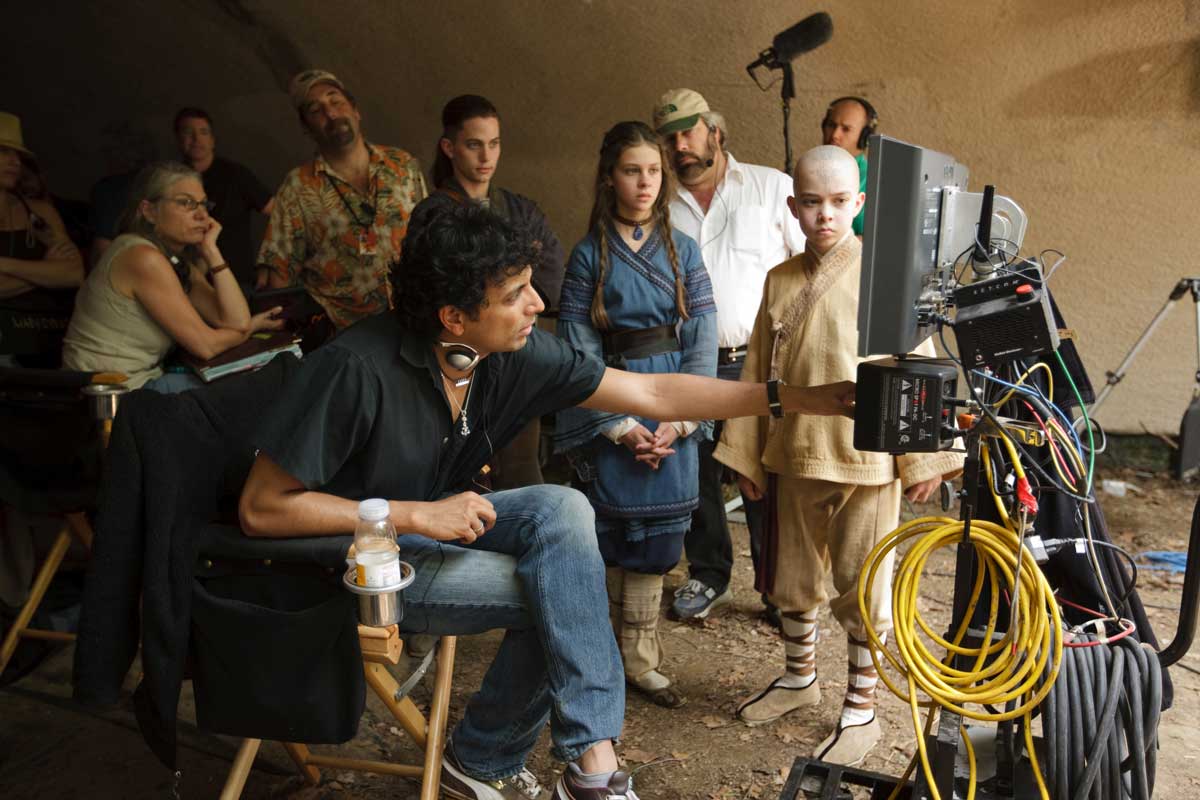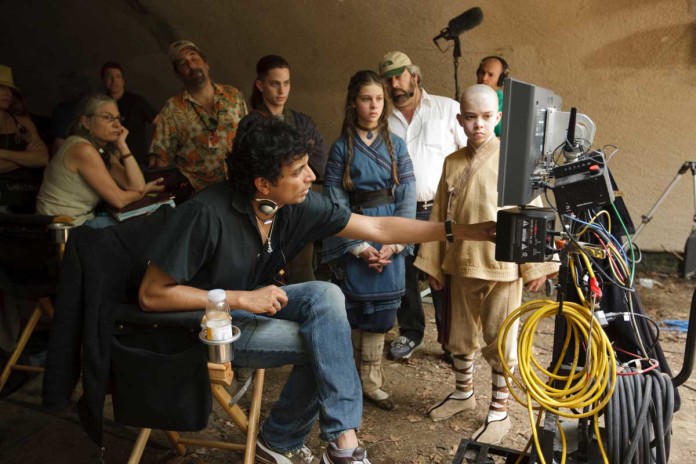LOS ANGELES – It is an old joke in Hollywood that the biggest twist in M Night Shyamalan’s work is how badly his career nosedived after he arrived on a wave of acclaim.
The Indian-American filmmaker announced himself to the world in 1999 with “The Sixth Sense” – a tense, supernatural thriller with a reveal so shocking he was talked up as the new Alfred Hitchcock.
Two follow-ups cemented his reputation as “king of the twist,” but years of poorly received work followed, prompting reviewers to wonder whether the twists weren’t just an attempt to paper over shoddy filmmaking.
Shyamalan has never let criticism jolt his vision, however, and the 46-year-old director has come full circle with rave reviews of his 2015 thriller “The Visit” and early acclaim for his new movie “Split.” Arriving for a preview screening of the psychological horror tale at the AFI Fest in Los Angeles this week, he was at pains to point out that the twist was never a defining feature of his work anyway.
“I don’t think of it like that… like I’ve got to bust out the big dance move everybody wants. It’s not like that,” said the father-of-three, known to friends as Night.
“It’s more about what is this story you’re telling and how are you telling that story.” Born Manoj Shyamalan in southern India, he was raised in an affluent part of Philadelphia, where he was given a Super 8 camera as a young boy and, inspired by the work of Steven Spielberg, made 45 short films before the age of 16.
His parents were both doctors, but while his father wanted him to go to medical school his mother encouraged him to attend film school at New York University.
Shyamalan still lives in Philadelphia, and it is partly because of his insistence in remaining outside the Hollywood fold, coupled with an indifference to bad reviews, that he has at times come across as aloof.
A 2008 article in the Guardian newspaper bemoaned his “defensive arrogance” which, coupled with his proclivity for appearing in his own films, came off as “petulant at best.” Yet in person he comes across as polite, affable, humble even, which points to a possibility that he often raises himself – that he is just misunderstood.
“I definitely feel like an outsider but I guess it’s my natural geography,” he told AFP at the “Split” screening at the iconic Chinese Theatre, the beating heart of Tinseltown.
“I live 3,000 miles away, and so I’ve never even been in this theatre. This is the first screening I’ve ever really done in Los Angeles.” Shyamalan’s rehabilitation began when he moved into television last year, executive-producing Fox mystery sci-fi series “Wayward Pines” and directing the pilot.
His first critical success since big-screen thriller “Signs” in 2002, the show was described by review aggregator Rotten Tomatoes as “creepy and strange in the best way” and a “welcome return to form.” .
“Split,” which Shyamalan also wrote and produced, delves into the fractured mind of Kevin (James McAvoy), who is suffering from dissociative identity disorder and manifests 23 distinct personalities.
Compelled to abduct three teenage girls led by the willful Casey (Anya Taylor-Joy), Kevin is the unwilling host of a war among all of the personalities contained within him – and a darker one yet to emerge.
The movie has been widely praised, garnering an approval rating of 80 per cent on Rotten Tomatoes.
Variety magazine described it as “a shockingly good thriller” and praised Shyamalan for getting a career best performance out of McAvoy.
It is all a stark contrast to the critical reception for the five movies directed by Shyamalan between 2004 and 2013, none of which scored higher than 43 per cent on Rotten Tomatoes.
Asked if he feels he has something to prove, the director looks bemused, telling AFP filmmaking is “so much more complex than that” and denying he would ever worry about people liking his films.
“I’ve been really excited with these last movies – meaning ‘The Visit’ and ‘Split’ – because I’ve made them very differently, smaller, being edgy and doing unusual things,” he said.
“Really I’m not thinking about what would work or what wouldn’t work. I feel more daring, you know – that ability to take risks.”







